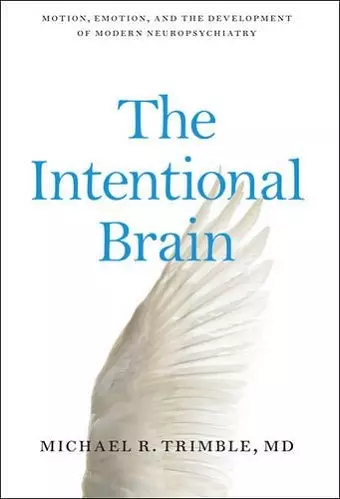The Intentional Brain
Motion, Emotion, and the Development of Modern Neuropsychiatry
Format:Hardback
Publisher:Johns Hopkins University Press
Published:5th Aug '16
Currently unavailable, and unfortunately no date known when it will be back

Known to psychiatrists, neurologists, and medical historians as the neuropsychiatrists' neuropsychiatrist, Michael Trimble has written a tour de force: an assessment of the 'culture' of mind-brain relations beginning with the ancients and ending in the present, and highlighting the romantic era of the nineteenth century as a crucial turning point. There is nothing else like it. -- Edward Shorter, PhD, FRSC, University of Toronto Accessible and enjoyable. This book's breadth of vision will appeal to a wide audience. -- Anthony David, MD, King's College London Dr. Trimble has made a tremendous contribution to the history of neuropsychiatry from the ancient Greeks to the present day. The Intentional Brain is sure to be well received by readers in the mental health sciences and professions and by those with an interest in medical history. -- Derick E. Vergne, MD, Tufts School of Medicine This is Trimble at his best. Some might describe the attempt as overly ambitious, but Trimble brings together a detailed understanding of the history of western thought and weaves into that our conceptions and understanding of neuroscience and neuropsychiatry. This is a delightful read, with interesting vignettes and astute understanding. -- Mark S. George, MD, Medical University of South Carolina
The Intentional Brain is a marvelous and interdisciplinary look at the clinical interface between the mind and the brain.Neuropsychiatry has a distinguished history, yet its ideals and principles fell out of fashion in the early twentieth century as neurology and psychiatry diverged into separate disciplines. Later, neuropsychiatry reemerged as the two disciplines moved closer again, accelerated by advances in neuroanatomy, neurochemistry, and drugs that alter the functioning of the central nervous system. But as neuropsychiatrist Michael R. Trimble explains in The Intentional Brain, the new neuropsychiatry has its own identity and is more than simply a borderland between two disparate clinical disciplines. Looking at neuropsychiatry in the context of major cultural and artistic achievements, Trimble explores changing views of the human brain and its relation to behavior and cognition over 2,500 years of Western civilization. Beginning with the early Greek physicians and moving through the Middle Ages, the Enlightenment, the romantic era, the World Wars, and up to the present day, he explores understandings about the brain's integral role in determining movement, motivation, and mood. Persuasively arguing that storytelling forms the backbone of human culture and individuality, Trimble describes the dawn and development of artistic creativity and traces the conflicts between differing philosophical views of our world and our position in it. A sweeping history of the branch of medicine concerned with both psychic and organic aspects of mental disorder, the book reveals what scientists have learned about movement and emotion by studying people with such diseases as epilepsy, syphilis, hysteria, psychosis, movement disorders, and melancholia. The Intentional Brain is a marvelous and interdisciplinary look at the clinical interface between the mind and the brain.
It reminded me exactly why I love psychiatry, for its complex history and ongoing scientific mystery. If you are feeling in need of a reminder of how far we have come, Trimble may provide just that inspiration. British Society for the History of Medicine
ISBN: 9781421419497
Dimensions: 229mm x 152mm x 26mm
Weight: 567g
328 pages